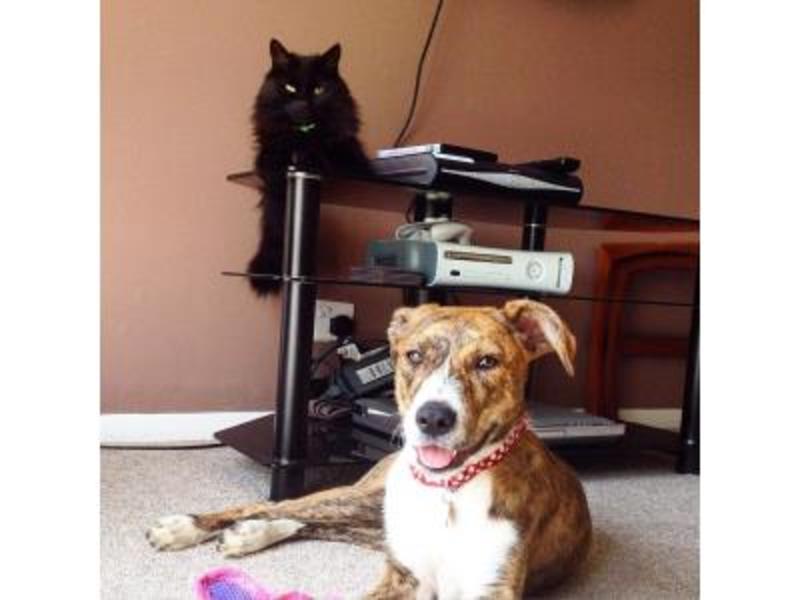We all love our pets and want more than anything to know they are happy. Anxiety and stress are natural emotions needed to keep us and our pets save in the world we live in. But like us, many pets experience anxiety and stress over and above what would be considered normal.
No two pets are the same or have the exact same experiences so what might worry one may not even be noticed by the other.
No two pets are the same or have the exact same experiences so what might worry one may not even be noticed by the other.
Things we would consider to be simple … like the hoover, ping of the microwave, the postman delivering the mail, a dog having its harness put on … can be really demanding for some of our pets. More obvious situations, e.g. difficulty being groomed, nail clipping, cleaning ears to car travel, thunder, lightning and fireworks; can make some pets lives a real challenge.
Stress has a physiological effect, and the consequences of chronic stress can lead to health problems, e.g. heart disease, high blood pressure. Our pets will try to self soothe to make them feel better, but this can lead to unwanted behaviours and health concerns such as over-grooming.
Our pets don’t rationalise like us, we are different species after all! Either something is safe or not and if it’s not they will want to avoid it or make it go away. For some, this can mean hiding or running away or going into attack mode to make ‘it’ go away, in an effort to make them safe again. Whichever response works in their favour will be used next time.
Many owners think that if we repeatedly put them in the same situation, and tough it out, then they will get used to it – in fact the opposite is true. Flooding them with the same worrying experience can worsen behaviours, causing them to generalise (e.g. being scared by a child, may lead to being scared of children which may go on to being scared of people) and develop serious fears and phobias – all of which will need behavioural modification.
Like us, our pets live with their emotions every day so it’s important to help them when they are feeling anxious and prevent the situation from getting worse. Start with getting to know your pet’s body language – this is a window into how they are feeling. We can learn to recognise the early signs of being anxious, regardless of species or breed – in fact, this is a vital part of being a pet owner. Showing teeth, growling and biting is at the extreme end of the body language repertoire – but are you picking up the more subtle lower level responses when your pet is starting to react to the situation, they find themselves in?
We can help support you and your pet with behaviour and training advice and the options available for supportive therapy such as nutritional supplements or pheromones.
So whether your pet has problems with travelling in the car, being groomed, scared of noises, trips to the vet, doesn’t get along with other pet/s in the household or any other behaviour concerns, then please contact us. If you would like further advice on your pet’s behaviour, please get in touch on 01376 325511 or email us at reception@millenniumvets.co.uk

